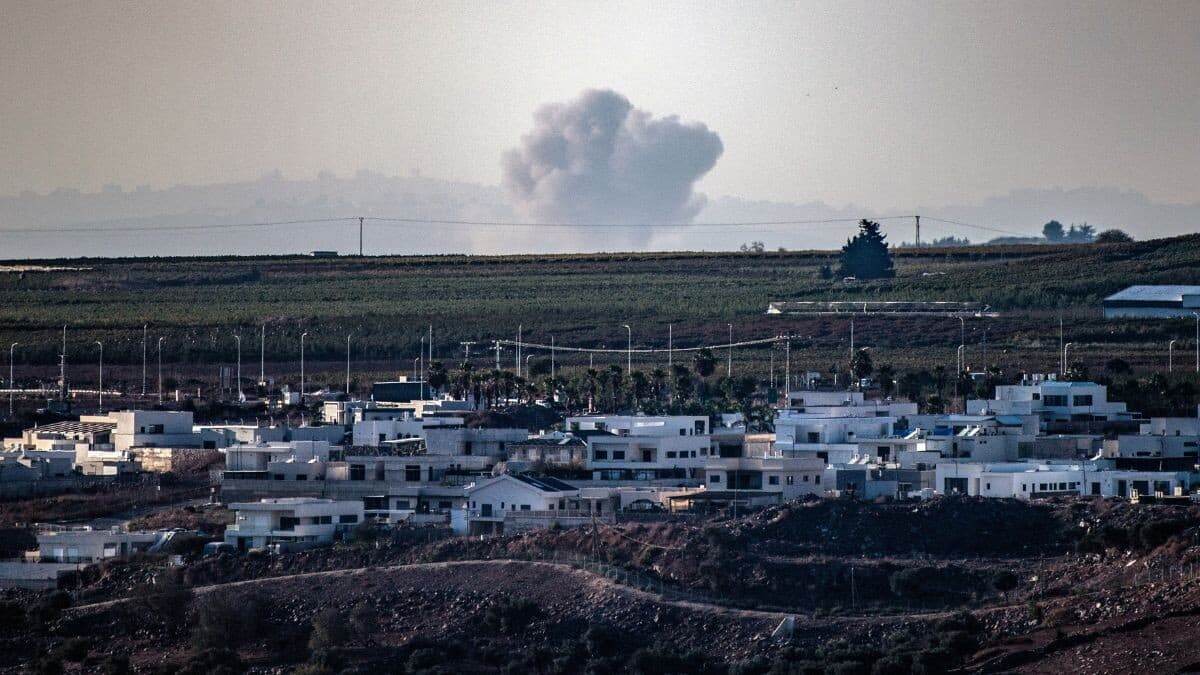
Did Israel hack Lebanon's telecoms to issue evacuation warnings
What's the story
Israel has been accused of infiltrating Lebanon's telecommunications systems to issue mass evacuation warnings. These alerts, delivered via phone calls, texts, and hacked radio broadcasts, have reached Lebanese civilians amidst escalating tensions between Israel and Hezbollah. The Israeli military recently issued its first formal warning since the Gaza war outbreak nearly a year ago, pledging to conduct "extensive and precise" strikes.
Psychological warfare
Warnings spark fear and speculation
The warnings have fueled fears of increased bombings, particularly as close to 500 people have already lost their lives in southern and eastern Lebanon. The state-run National News Agency (NNA) reported that residents in Beirut and other regions received these alerts, labeling them a "psychological war" tactic by Israel. Some residents received direct calls with recorded messages, while others got text messages urging them to distance themselves from Hezbollah-held locations.
Communication breach
Israel's alleged bypass of Lebanon's telecoms system
Imad Kreidieh, head of Lebanon's state telecom provider Ogero, confirmed that their landline network blocks all calls from Israel. However, he suggested that Israel might have circumvented this system using international phone codes from friendly nations. This has raised concerns about potential data privacy and security breaches within Lebanon's communication infrastructure.
Past tactics
Israel's history of surveillance
The Israeli military has previously used such warnings to minimize civilian casualties while simultaneously employing psychological warfare. These methods were commonly used during Israeli military campaigns in Gaza, as confirmed by military analysts. "Israel has access to landlines, car plate numbers, and mobile phones," said Elijah Magnier, a conflict analyst. "They can communicate directly with civilians... It's no surprise that Israel knows exactly who lives where and can use this data in real-time."
Cybersecurity concerns
Lebanon's data privacy laws criticized
Lebanon's data privacy laws have also come under scrutiny, with experts criticizing their inadequacy in the face of such breaches. The Lebanese Constitution does not explicitly protect electronic privacy, and surveillance-related laws are weak. This has led to increased concerns about the nation's cyber vulnerabilities in a region where technological dominance can significantly influence conflict outcomes.
Shift in violence
Nearly 500 killed in Israel's airstrike on Hezbollah
Separately, nearly 500 people were killed in southern Lebanon following Israel's largest aerial assault on Hezbollah, an Iran-backed Shiite militant group, since the Gaza conflict began on October 7. According to Lebanon's health ministry, around 1,650 people were injured, with roughly 100 women and children among the dead. The recent attacks have shifted the violence from Gaza's southern border to Lebanon's northern frontier. Hezbollah—which controls Lebanon—has been exchanging fire with Israel in support of Hamas since the war's onset.